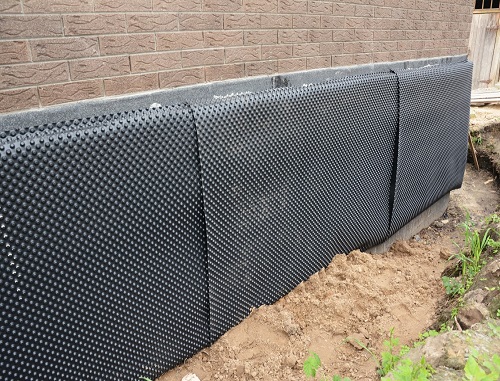5 Things to Look Out for When Flipping a House
Flipping a house – that is to say, buying a house and quickly reselling it for profit – can be incredibly risky, but it can also be incredibly rewarding. There’s nothing quite like the feeling of looking at a property that was once in ruin and now shimmers gloriously thanks to your efforts. You’ll have to put a lot of work in if you want the house to sell at a profit, but it’s worth it; flipping houses boasts one of the clearest hard-work-to-reward ratios there is.
With that said, there’s plenty to look out for on the road to flipping a house. The pitfalls are numerous, and falling into them could mean an end to your house-flipping journey. When you go into a house-flipping job, it’s important to keep an eye on a checklist of sorts to make sure you’re not falling foul of some of the more typical traps. Here are 5 of the most common things you should be looking out for when you’re house-flipping.
1. Rising damp
Depending on how old your property is, there’s a chance it might be at risk of rising damp. This phenomenon occurs when groundwater moves up a building’s walls and starts causing minor damage to the property’s structural integrity. Often, you’ll be able to spot rising damp before it causes serious damage, but it’s more prevalent in older properties, so it’s something to look out for when you’re flipping.
Usually, getting in touch with professionals like those at the link above will sort out a rising damp problem. In more extreme cases, you’ll have to install a specialist system which will chemically combat the rising damp, but this isn’t usually the case. Rising damp is often more of a pest than a real problem, but it can cause issues for those with allergies or sensitive immune systems.
2. Structural damage
There’s a lot of structural damage to watch out for when you’re flipping older houses. If a house has serious problems – that is, if it needs a new roof, wall work done, or new electrical wiring – it can sometimes not be worth the investment. With that in mind, before you start flipping a house, make sure you take a good look at it. Don’t simply glance over; schedule some time for a serious investigation.
What you’re looking for is real, permanent damage that’s going to take time, money, and dedication to fix. If a house’s basic structures are intact, you can redecorate and make a profit. If you need to rewire, rebuild, or repair anything, then the chances are unless you’re a skilled DIY enthusiast you’re going to incur more costs than you’ll make back from selling the house.
3. The neighborhood
If a house seems to be going for a song, ask yourself one question: why? Maybe it’s just because the house needs a little TLC and nobody’s been willing to put that effort in until now. It could also just be because the house has only just entered the market and nobody’s put in a serious offer. There are a number of reasons a house might be up for sale, but one of them could be its neighborhood.
If you buy a property and then realize the neighborhood is dangerous or shady, you’ll almost certainly not make a profit, since you won’t be able to attract business. Before you buy a house, do some serious research into whether or not the area is generally considered to be “okay”. If not, trust us – leave well alone. You might think you can turn things around, but it’s likely you’ll lose money.
4. Your demographic
Who are you flipping the house for? When you eventually do move on to the sales stage, what kind of person is going to be interested in your house? This is a crucial statistic for you to know. By having this information in the back of your mind, you can tailor your flip job to make sure that the house appeals to the kind of person who resides in the neighborhood or is interested in living there.
This decision should inform all of your flipping decisions, from how many repairs you carry out to how you decorate and furnish each room. Take a look at some of the houses in the area if you can. What sort of décor do they have? How have they presented themselves externally? It’s important to try to mirror the values of the neighborhood and of the kind of person to whom you’re selling.
5. Your budget
Trust us when we say it’s very easy to go over budget when you’re flipping a house. Spending too much money in an effort to make a profit is a tragedy, but it happens to many people for one simple reason: the project never feels like it’s over. The cash can really rack up when you make every single aspect of the renovation your problem rather than correctly prioritizing and itemizing your task.
Ask yourself these questions: do I need to furnish every single room? What are the essentials I definitely need to include in my flip? Can I afford marketing as well as simply putting the house on the market? What external help can I enlist? All of these questions are crucial if you want to make money flipping a house, and they’re questions you should be pondering before you actually begin.
